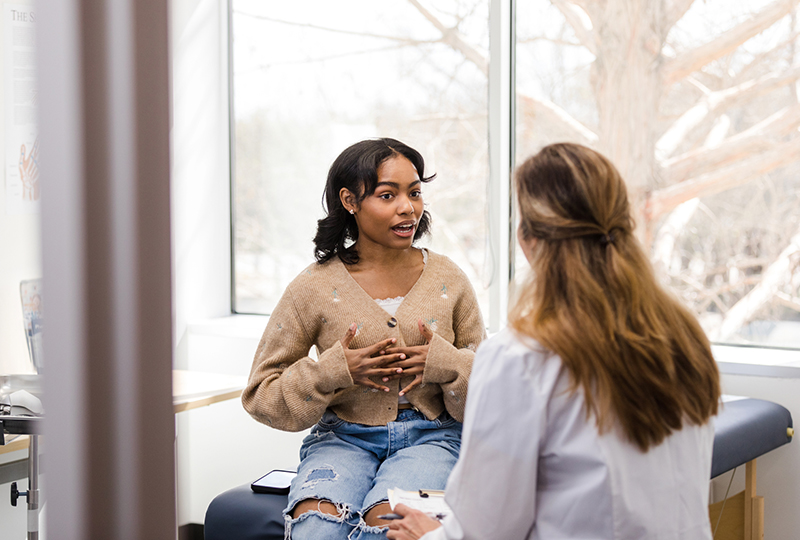What is it, and when and how often do you need it?
You may be wondering how often you need a well-woman exam with your gynecologist, when you should start these visits, and what tests are necessary at your appointment. Plus, is it necessary to see your primary care physician and your gynecologist? We asked Dr. Ginny Barton, an OB-GYN with Vanderbilt Women’s Health to answer these important questions.
What is a well-woman exam?
“It varies, depending on age,” Barton said. “For most women, they get a breast exam and a pelvic exam.” But your care team will also check your vitals, listen to your heart and lungs, and ask if you’re having any new or unusual symptoms.
At what age should well-women exams begin?
“We typically don’t start doing pelvic exams and Pap smears until age 21,” Barton explained, “unless a patient has a complaint about something.” Once you’ve reached 21, you should get a Pap smear every three years until you turn 30. Once you reach 30, if you haven’t had an abnormal Pap smear result, you can likely switch to getting a Pap smear every five years. Pap smears generally continue until about age 65. However, some people who’ve had abnormal Pap smears may need to continue getting them.
Previously, Pap smears were recommended more regularly, but the guidance changed several years ago. Barton said she’s had patients who prefer to be seen every year because of the older guidelines, and she sees those patients if they want to have an exam.
Although well-woman visits aren’t necessary every year, if you are having an issue, you should contact your provider. Abnormal bleeding, pelvic pain or extreme cramping, breast changes, and more are reasons to make an appointment. You should also schedule a well-woman visit if you need prescription birth control or are concerned you may have a sexually transmitted infection.
“Insurance typically covers STI testing yearly,” Barton explained. “So if there’s ever any question, it’s always a good idea to get checked.”
What’s the importance of a woman’s assessment?
“For a lot of women,” Barton said, “the gynecological visit may be the only time they see a doctor.” You should see your primary care doctor according to the schedule your provider recommends. However, not everyone does, Barton noted.
“For a lot of women, they’re so busy taking care of everyone else in their household that it’s sometimes hard to get them to go in,” she said. That makes the well-woman exam crucial. “It’s a good opportunity for a checkup to make sure they don’t have any complaints and to screen for cancer,” she added.
Many cancers that affect the female body do not have warning signs until the cancer has advanced. The prognosis is generally better the earlier a cancer is detected. This is especially true for ovarian cancer.
“Coming into your well-woman visit in a timely fashion allows us to pick up on those patients who need to start screenings sooner.”
Mammograms to detect breast cancer generally begin at age 40, with some exceptions. “Coming into your well-woman visit in a timely fashion allows us to pick up on those patients who need to start screenings sooner,” Barton said.
Your OB-GYN is another resource to help you stay on top of additional tests you may need. “We’re checking in on their colon cancer screenings,” Barton explained, “and then when they hit 65, bone density screenings. And we check in on their overall health, not just gynecological health.”
In addition, being a regular patient with an OB-GYN can help should anything unusual arise. “If you have a problem and you’re already an established patient it’s easier to get an appointment,” Barton said.

Need help?
Vanderbilt Women’s Health provides care for women at all stages of their lives at locations across Middle Tennessee. For an appointment, call 615-343-5700.

